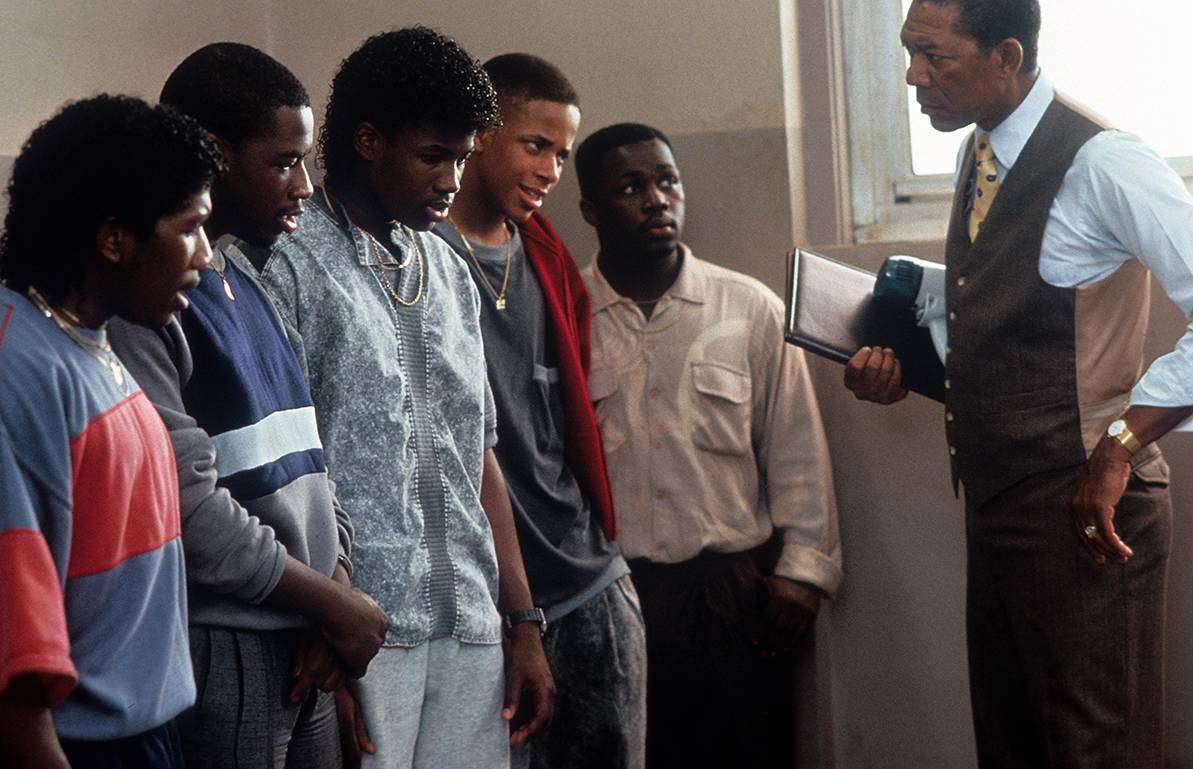Brian Hudgins | February 8, 2023


When Dr. Marcus Johnson, an assistant professor in the Department of Curriculum and Instruction at Texas State University, analyzed 11 Hollywood movies that feature Black male teachers – he and his colleagues witnessed some disturbing themes.
Dr. Daniel Thomas III (lead author) of the University of Kansas, Johnson and Dr. Anthony Brown of the University of Texas at Austin conducted the study, which was published in Educational Studies last year.
In “(Un)Natural Saviors and Motivators, Analyzing the Pathological Scripting of Black Male Teachers in Hollywood Films,” the team analyzed films covering multiple decades, including the 1989 hit “Lean on Me” starring Morgan Freeman. Other films examined included: “Cooley High,” “Menace II Society,” “Higher Learning,” “Major Payne,” “Hard Lessons,” and “One Eight Seven.”
Whether the material was a drama or comedy, there were common threads throughout the films.
“Movies play an important part in the public exchange of ideas and often have presumed legitimacy,” Johnson said. “There is no script without an absent or powerless Black father. The Black male teacher is often positioned as the father.”
The research builds upon a September 2011 article authored by Brown in Teachers College Record. “Same Old Stories”: The Black Male in Social Science and Educational Literature, 1930s to the Present.”
Johnson notes the group findings are not made by secondary out of classroom observers. “All three of us have been teachers in public school systems before getting our doctorates,” he said. For Johnson, that classroom experience came at the elementary school level in Greater Houston.
After Black male teachers are tasked with serving as fathers in many of the 11 Hollywood films, they often take on a savior role to protect students from foreseeable death. The teacher is also positioned as a motivator of lazy students who are disinterested in the class material.
“When these (movie) teachers are highlighted as motivational saviors, very little is stated about their knowledge,” Johnson said. “When you see people strictly as bodies, you don’t see their intellectual skills. You can’t become a teacher just by being a motivator.”
By addressing these points, the research team hopes to convince cinematic production crews to give more attention to a question: Why do these conditions exist? “The Black male teacher is dropped into a situation that is challenging,” Johnson said. “They don’t have to just steer the ship. They are put in choppy waters – dealing with decades of disenfranchisement and the creation of conditions.”
When school systems speak about increasing the number of male teachers – especially Black male teachers – Johnson noted there has to be an understanding of economic, social and cultural elements that contribute to low numbers of Black male teachers. “If you have a bad experience as a student … if that place was not affirming as a student, you are not going back to teach there,” Johnson said.
Far away from Hollywood filmmakers, Johnson is proud of the job Texas State University is doing to assist and build up young teachers. “We produce the most public school teachers in the state,” Johnson said. “If we are able to undo these narratives, we will be able to do teachers and students a better service.”
Share this article
For more information, contact University Communications:Jayme Blaschke, 512-245-2555 Sandy Pantlik, 512-245-2922 |
